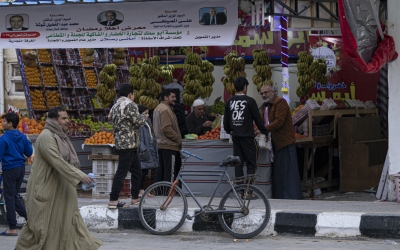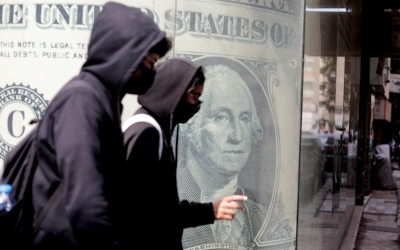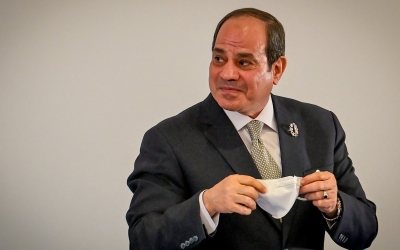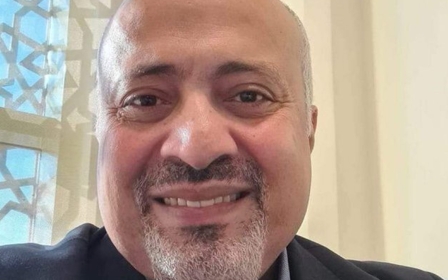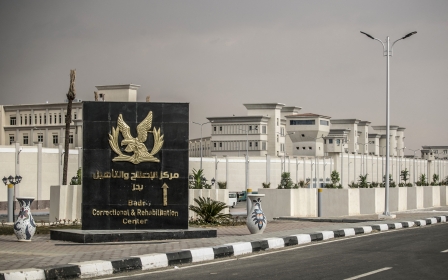Egyptians hunt for dollars, gold to protect savings ahead of expected rate hike
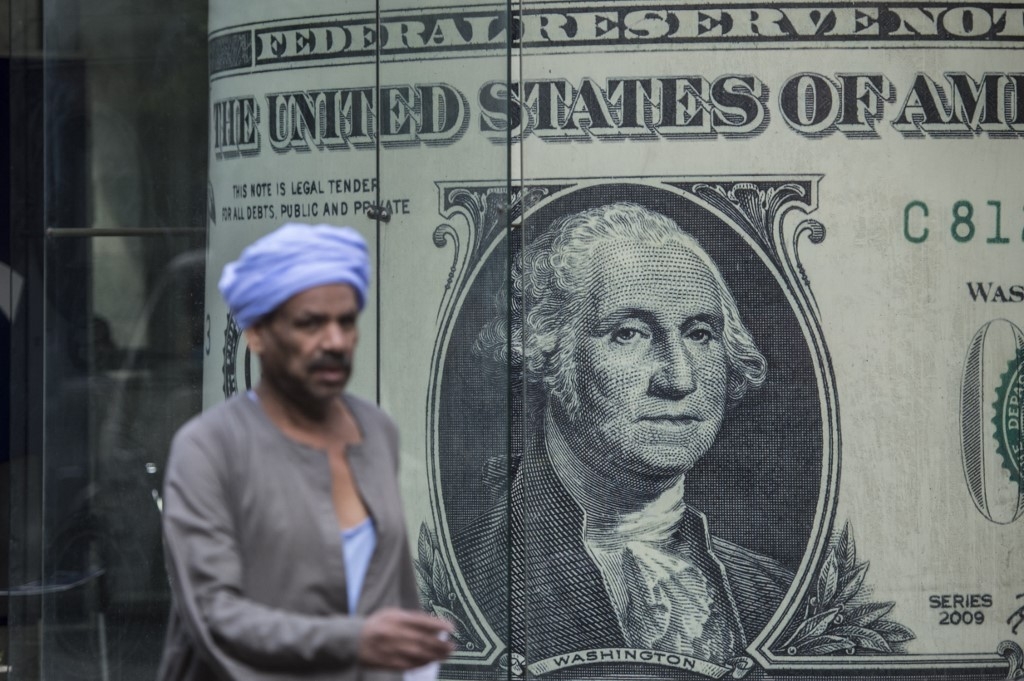
Mustafa Mohamed deferred the sale of the $1,500 he was paid by the company he works for as a freelance translator two weeks ago in hope that the exchange rate of the American currency would rise against the Egyptian pound in the coming period.
He has not only held on tightly to the greenbacks he has but also bought – even with difficulty – an additional $500 from a nearby exchange company.
'Everybody is talking about an expected rise in the exchange rate of the Egyptian pound'
- Mustafa Mohamed, translator
"Everybody is talking about an expected rise in the exchange rate of the Egyptian pound," Mohamed told Middle East Eye.
He and like-minded people are fuelling a new drive in Egypt, namely hoarding foreign currencies in expectation of a rise in the exchange rate of these currencies against the Egyptian pound.
The Monetary Policy Committee, the decision-making body of the Central Bank of Egypt (CBE), is due to hold a meeting on 19 May to declare the measures the bank will take in reaction to the latest rate hike by the US Federal Reserve.
New MEE newsletter: Jerusalem Dispatch
Sign up to get the latest insights and analysis on Israel-Palestine, alongside Turkey Unpacked and other MEE newsletters
The 0.5 percent rate rise by the Fed has precipitated a chain reaction in most Arab countries, one that has seen central banks in the region raising key interest rates.
Egyptians widely expect the CBE to follow suit, even as the bank shrugged off the idea of holding an emergency meeting following the Fed's latest rate rise.
It said there weren't sufficient reasons for an emergency meeting amid talk about monetary planners' desire to calm down the market, against the background of rumour-mongering powered by the Fed's move.
Stockpiling the greenbacks
There is a general feeling in Egypt these days that something big will happen on 19 May during the meeting of the Monetary Policy Committee of the CBE and people like Mohamed, the freelance translator, want to capitalise on this.
Feeding this feeling is the 21 March decision by the committee to devalue the national currency by 14 percent and raise the key interest rate by 1 percent.
The depreciation of the Egyptian pound drove the exchange rate of all foreign currencies up.
The exchange rate of the US dollar climbed to 18.45 pounds, compared with 15.66 pounds a day before the depreciation.
The same expectation is causing a stampede for US dollars across Egypt, according to the Exchanges Council, the Federation of Egyptian Chambers of Commerce body that coordinates the work of the nation's foreign exchange companies.
"Those having US dollars are hoping that the exchange rate of the US currency will rise in the coming period," Ali al-Hariri, the head of the council, told MEE. "Everybody is waiting to see what the Central Bank will do on 19 May."
The rush for local foreign exchange companies is also partly caused by a dearth of greenbacks at the nation's banks.
According to several bank clients, the banks only buy US dollars, but do not sell them.
This comes despite a slight rise in Egypt's foreign currency reserves at the end of April, according to the CBE.
The reserves rose to $37.123 billion at the end of April, up from $37.082 billion at the end of March.
However, Egypt apparently keeps the few dollars it has for the import of basic needs, especially food and other essential requirements.
Gold buying spree
The rush towards US dollars is only a small detail in the larger picture of Egypt's market conditions, following the Fed's latest rate hike.
Similar swarms are seen at the nation's jewellers, with moneyed Egyptians trying to diversify their investments and seek hedges against inflation.
'It is clear that people want to turn the liquidity in their hands into gold because gold offers protection against inflation'
- Rafiq Abbasi, Federation of Egyptian Industries
Some people opt for gold as a store of value as the future of the national currency seems to be far from certain.
"There is a surge in demand for gold in the market, causing the price to shoot up," Rafiq Abbasi, the head of the gold section at the National Federation of Industries, told MEE.
"It is clear that people want to turn the liquidity in their hands into gold, which is happening in many other countries, because gold offers protection against inflation."
Growing demand is causing a continual rise in the price of gold across Egypt.
The government, which bought 44 tonnes of gold from the international market in February, is apparently trying to capitalise on this rising demand.
A government official revealed recently that the government plans to found a company to trade in gold and precious stones.
The new company will be founded by some government agencies, banks and private sector investors, according to Ibrahim Ashmawi, the deputy minister of supply and domestic trade.
Rush for real estate
Meanwhile, there is a similar run for real estate as another store of value.
This comes as economists advise the members of the public who have money to head for the property market to prevent the value of their savings from declining as the nation prepares for a potential additional depreciation of the Egyptian pound.
The 21 March devaluation of the pound has had a toll on the prices of all commodities, including the prices of building materials.
This is also causing a spike in the prices of real estate properties even as most of the real estate units put on sale now were constructed before the current hike in prices.
"People try to protect their savings by purchasing things whose value will increase with time," Ahmed Diab, a member of the Economic Committee in the House of Deputies (lower chamber of parliament), told MEE.
"The prices of building materials are rising, which is reflected in the prices of real estate properties."
Shot in the arm
Egypt has been at the centre of negative effects from the ongoing Russian-Ukrainian war.
The local tourism sector, which employs 9.5 percent of the workforce of 27 million, is heavily dependent on tourist inflows from Russia and Ukraine.
Russians and Ukrainians make up roughly a third of all the tourists who visited Egypt in recent years.
Egypt is also heavily dependent on wheat imports from the two countries, with almost 80 percent of all imports coming from Russia and Ukraine last year.
To cushion the effects of the war and adapt to repeated rate hikes by the Federal Reserve, the Egyptian government took a series of measures in recent weeks.
The measures aimed mainly to put the brakes on the expected drain on foreign currency reserves and make up for the loss of revenues from the tourism sector which contributes 11.9 percent of the country's GDP.
The measures included restricting import operations by forcing the nation's importers to seek letters of credit from the banks for shipments coming from other countries.
This has choked production, with many local manufacturers complaining that the new measures make it difficult for them to import production materials.
Egyptian President Abdel Fattah el-Sisi had to intervene on 10 May to reverse some of the measures, with a view to easing restrictions on the import of production components.
Crash fears
Economists have expressed fears, meanwhile, that the current financial bubble could be followed by a sudden fall in growth.
The expected crash could be driven by low demand in the coming period, with inflation rising and the market suffering an acute lack of liquidity.
The banks have already absorbed a sizeable amount of liquidity from the market through lucrative saving schemes, including investment certificates with an interest rate of 18 percent.
In raising the interest rate, monetary planners were hoping to create demand for the Egyptian pound and stabilise the exchange rate of the pound against foreign currencies.
However, the same measure, economists say, is opening the door for a recession, one exacerbated by rising inflation.
"This is why it is necessary for those who have money to invest in things whose value will increase with time," Diab, the Economic Committee member, said. "There are many investment options, including also in the stock market where new state-owned companies expect to be listed in the coming period."
Middle East Eye delivers independent and unrivalled coverage and analysis of the Middle East, North Africa and beyond. To learn more about republishing this content and the associated fees, please fill out this form. More about MEE can be found here.


